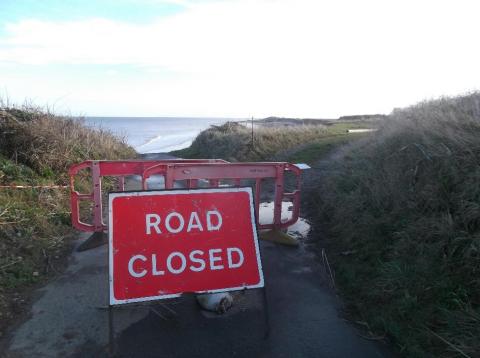This project has a dedicated website: https://www.channelcoast.org/ccoresources/coastalres/
Climate change and sea-level rise pose a significant threat to the coast, including increased coastal erosion and flooding. To ensure coastal resilience it is important to anticipate change and develop strategic proactive management plans. These need to consider the physical and socio-economic dimensions of the coast and its changes. They also need to recognise historical legacy and work with change where appropriate, allowing for rapid directed and slow progressive transitions. Taking the current Shoreline Management Planning (SMP) framework as a starting point, we are developing new methods to enhance coastal resilience. This takes a strongly participatory approach and involves three key steps.
• Review the current strengths and weakness of SMPs (including liaising with the current SMP2-Refresh)
• Develop new strategic options for shoreline management, taking a resilience perspective
• Demonstrate the utility of these methods on selected case studies.
The ultimate aim is to develop better coastal risk management policies and practices, including devising a comprehensive set of indicators of coastal resilience.
Sea-level rise is one of the most profound aspects of human-induced climate change and its steady but uncertain rate of rise will transform the world’s coasts in the coming decades, threatening millions of coastal and floodplain residents. While this is understood in a technical sense, wider society has not grasped the scale of change produced by expected rise in sea level over the next century. In the UK, with its large legacy of coastal defences, this issue is especially challenging. Many defences are uneconomic to maintain and renew, and widespread ‘realignment’ is planned within the strategic process of SMP. Realignments reactivate natural sediment processes which enhances self-adjusting natural protection with both risk-reduction and aesthetic benefits. However, the transformation from a defended to a realigned coast is especially challenging to implement and will be an important focus of this research.
There has been surprisingly little consideration of how the transition to a realigned coast can be facilitated and enabled across the full range of physical and social perspectives. Efforts to better understand the full range of adaptation options and their implementation, including realignment, offer potentially significant rewards in terms of tangible enhancement of coastal resilience. CoastalRes aims to develop and demonstrate prototype methods to assess realistic pathways for strategic coastal erosion and flood resilience in the light of climate change, including sea-level rise. We will accomplish this aim via three objectives.
- Objective 1. Co-produce a comprehensive set of representative coastal archetypes that describe the open and estuarine coasts of England and Wales in terms relevant to building coastal resilience, including present and future demography, hazards, sea-level rise, contrasting geomorphology, shoreline position, land use patterns and management legacy. This will include early and fully participatory engagement with stakeholders to consider their knowledge and experiences and define the full range of archetypes.
- Objective 2. Identify and evaluate a comprehensive range of strategic high level adaptation options, considering their physical suitability, economic efficiency, social acceptability and pathways of application (potential sequence in time) and impact on UK resilience. This will include a systematic literature-based review combined with two regional stakeholder workshops organised with the Coastal Group Network and the Environment Agency.
- Objective 3. Taking three common and representative coastal archetypes, design decision pathways to maintain and enhance resilience based on the menu of adaptation options. This will include consideration of a range of factors including policy choices, cost implications, risk trade-offs and public participation in problem specification and decision making. These adaptation pathways for resilience will be validated with representative real sites.
The use of coastal archetypes for the analysis, rather than case studies, is novel and allows generalisation from individual cases to develop generic and transferable guidance. Crucially, our analysis considers all the open coasts and estuaries in England and Wales, as estuaries contain a large proportion of the assets and activities exposed to marine flooding. In contrast to previous work, which has tended to rely on consultation and ‘outreach’ to stakeholders, our research will have a genuinely participatory approach. This will allow us to achieve a consensus understanding with a large and diverse group of relevant Project Partners, including the key organisations the Environment Agency and Maritime District Authorities. The CoastalRes Project will provide a solid demonstration of a transition to a more balanced, resilient and sustainable portfolio of adaptive options on the UK coast and provide a foundation for further research in this area.
Image credit: Sally Brown, University of Southampton
Project outputs
- Brown, S. et al. 2023. Transitions in modes of coastal adaptation: addressing blight, engagement and sustainability. Frontiers in Marine Science. Vol 10 – 2023
- Masselink, G. and Lazarus, E.D. 2019. Defining coastal resilience. Water. 11.
- Policy Brief: Improving the Resilience of UK Coastal Communities
- Townend I.H., French J.R., Nicholls R.J., et al. 2021. Operationalising coastal resilience to flood and erosion hazard: A demonstration for England. Science of The Total Environment. 783: 146880
- Lazarus E.D., Aldabet S., Thompson C.E.L., et al. 2022. The UK needs an open data portal dedicated to coastal flood and erosion hazard risk and resilience. Anthropocene Coasts. 4(1): 137-146
- The project has produced a Coastal Resilience Model Portal: https://coastalresilience.uk/crm/ (find out more on our Decision Support Tools page)
- See a poster for the CoastalRes project.

